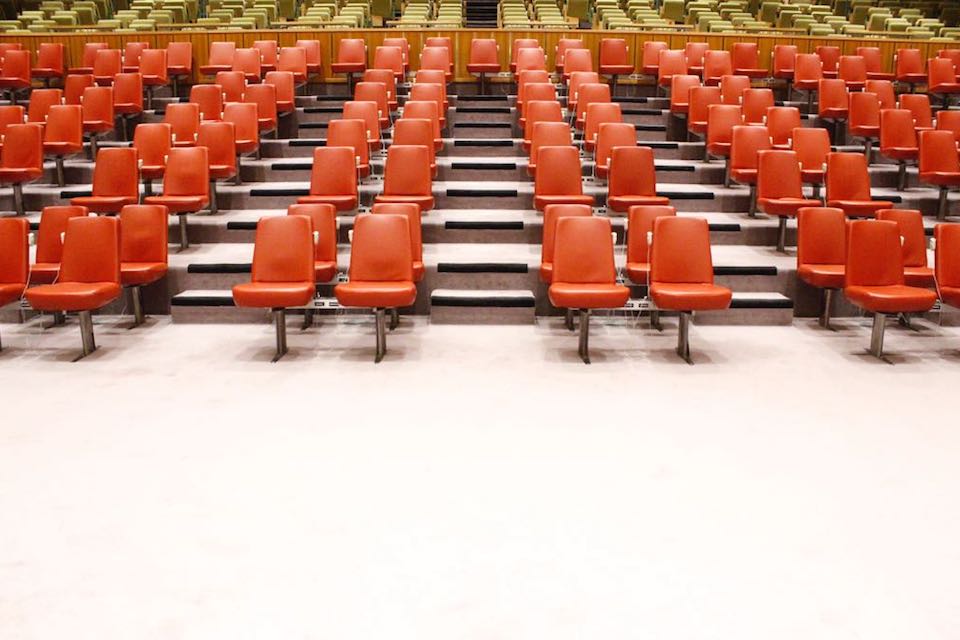Strengthening confidence-building and dialogue mechanisms between regional and sub-regional organisations
Statement by Lord Ahmad of Wimbledon at the Security Council briefing on cooperation between regional and sub-regional organisations

Thank you, Secretary-General Guterres and Mr Ban and all of the briefers for the poignant reminders of the challenges we collectively face.
As we all recognise, conflict has a devastating impact. We know it hits hardest amongst the poorest and indeed the most vulnerable.
By the World Bank’s reckoning, by 2030, two thirds of the world’s extreme poor could be affected by a fragility, conflict and violence.
The Council’s agenda, sadly, is a tragic testimony. In the last two weeks alone, we have discussed conflicts in Yemen, in Mali, in Syria and the Great Lakes region, amongst others.
So, Mr President, we welcome the adoption today of a presidential statement under your leadership. We hope it will serve to strengthen confidence-building measures and, indeed, dialogue mechanisms with the regional, sub-regional and importantly, civil society organisations on whom peace processes so deeply depend.
I would like to highlight three ways that we believe we can strengthen the vital role of these organisations.
First, regional and sub-regional organisations can restore trust between conflict-affected communities. In particular, the work of the OSCE High Commissioner on national minorities has reduced tensions and prevented conflict across the OSCE region. As regional organisations develop their technical capacity, they should seek to follow this very example. And we should seek to boost their willingness to use confidence-building measures as and when it’s required.
Secondly, confidence-building and dialogue must be absolutely part of a broader strategy coordinated through the good offices of the United Nations.
We recognise the unique role of ASEAN of addressing the crisis in Myanmar. The UK further welcomes ASEAN’s readiness to support positive and constructive efforts. And therefore we look forward to the close UN-ASEAN cooperation to solve the conflict and serve those who are suffering, those who are in need.
We also applaud the 2017 United Nations African Union Joint Framework for Enhanced Partnership in Peace and Security. This was indeed instrumental in the 2019 peace agreement between the Government of the Central African Republic and 14 armed groups. And we call upon all political actors to remain committed directly to it.
Thirdly, regional bodies need to include civil society organisations in a meaningful capacity at all levels of dialogue. If we are truly to build inclusive and enduring peace, civil society bodies should be - have to be - pivotal in all aspects of conflict prevention and importantly, also in conflict resolution.
As has been said by others, including my good friend, the Foreign Minister of Ireland, it’s important that women are central to peacemaking. In particular, regional women’s networks, such as ASEAN Women for Peace Registry and the African Union’s FEMWISE Africa, are vital actors in the pursuit of a lasting and sustainable peace.
The United Kingdom, I assure you, is absolutely committed to protecting and promoting women peace builders, and we are proud to have supported the International Civil Society Action Network’s Protection Framework. I urge others to support and implement its expert and effective recommendations.
On our shared path to peace, we need this more open and inclusive approach for a stronger and more coherent international response. The nature of conflict has changed. Increasingly, we see conflicts that are intrastate in nature, which have the potential to destabilise peace and security on a global level. We also see how marginalisation and human rights violations can totally and utterly isolate communities and indeed perpetrate violence.
To tackle these conflicts’ driving forces, we must and we need to combine our humanitarian, development and peacebuilding efforts. The Peacebuilding Commission is absolutely at the heart of this, and we commend the Peacebuilding Fund’s support, which builds trust amongst communities, because ultimately, where national and regional efforts fail, it is the Security Council that has primary responsibility for both international peace and international security.
We do that best when we have a clear view. The United Kingdom supports regular and coordinated early warning capabilities, which help the Council to prevent escalation. Regional organisations can strengthen that capability by sharing early warning assessments and bringing emerging situations to the Council’s direct attention. Accurate and timely information needs to be coupled with effective early engagement and support at community, state, regional or continental level.
And where prevention activities fail, or there is no regional consensus, it is this Council that should lead the international community not just to discuss, to debate, but to act. The United Kingdom stands ready to support regional and subregional organisations as they continue to strengthen the confidence building and dialogue efforts.
It is only by mobilising all the tools at our collective disposal, Mr President, that we can avoid the escalation of violence and secure the lasting, sustainable peace that we all desire.
Thank you, Mr President.